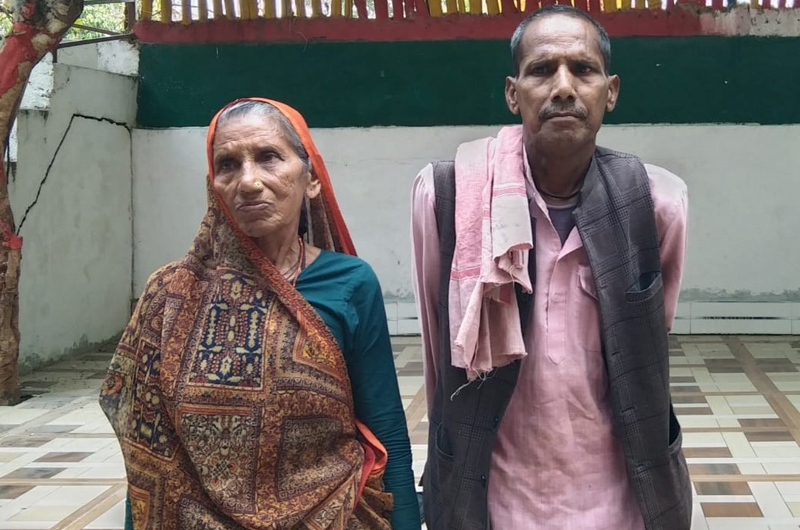After speaking to the grieving families of two beleaguered farmers who took their own lives, Bharat Dogra makes a case for organisations which provide counselling and practical help
Rameshwar purchased a tractor, taking a loan, in 2011. Subsequently, various factors made it difficult for him to pay back the loan and, finally, in May this year, he committed suicide. Unable to bear the pain of Rameshwar’s death, his brother Jagdyona also died within a week or so. Rameshwar’s eldest son, Vijay Bahadur, who is ailing, has inherited a damaged tractor and an unpaid loan.
Rameshwar was a farmer in Hastam Village in Mahuva Block of Uttar Pradesh’s Banda District. His extended family subsists by farming their five acres of land. Rameshwar had always dreamt of buying a tractor but was held back by the knowledge that he couldn’t afford one. However, he was lured by the promise of a bank loan which could be repaid in easy installments, and bought one at the cost of Rs 485,000, not taking into account the high interest rates.
Although Rameshwar tried his best to pay the installments on time, frequent erratic weather leading to less than expected yields sent up the dues to over a million rupees at one point. He managed to bring the outstanding to more manageable limits, but then, the tractor stopped working, and the family could not afford the Rs 40,000 to Rs 50,000 needed to repair it. The dues started rising again. The notices of unpaid dues made the farmer tense, denting his self-respect and exacerbating his worries about his family’s future. The last notice Rameshwar received was for over Rs 640,000. Unable to stand the strain, he took his own life.
When this writer visited the village after about two weeks of Rameshwar’s death and that of his brother, the family was still reeling from the double whammy. Left without enough money even for food, Vijay was at his wits end. VDS, a local organisation trying to reduce farmers’ distress, has been trying to offer some support, but Vijay’s health problems limit his ability to work hard.
Rameshwar is only one of the many farmers who have seen the extreme step of suicide as the only way out of a debt trap. Recently, Ram Nihor, a young farmer of Baragaon Village (Baberu Block) of Banda District, took the same route. His ailing father Sukhdev recounts the sequence of events while wiping away his tears. He has a serious stomach ailment which requires surgery.
Ram Nihor’s elder brother Basant is unwell too, so the young man considered himself responsible for the upkeep of the extended family. He was ready to work hard but no amount of effort could help him repay a huge loan the family was saddled with. Sukhdev says the original amount of around Rs 100,000 had grown about five times with compound interest, and there was no way to repay it by cultivating the three acres the family owned.

Ram Nihor had been talking of suicide for a long time, and had even attempted it twice. Sukhdev, his wife and other respected elders had tried in vain to get the idea out of his head, and he succeeded on the third attempt. The death of the most capable member of the family has only added to its woes. His grieving mother says he leaves behind a little daughter.
Ram Nihor had apparently spent a great deal of thought on how to get his family out of the debt trap, but failed to find an answer. Could the situation have turned out differently if someone had been able to offer him some concrete hope? Can the government provide some support in such cases? Clearly, there is a need for some body such as a distress relief centre which farmers can approach to discuss possibilities of debt relief or supportive development schemes, or even for some counselling to provide a sense of hope and confidence. Perhaps, if such a facility had been available, Rameshwar and Ram Nihor would have been alive today.
(The writer is a senior freelance journalist and author who has been associated with several social movements and initiatives.
He lives in Delhi.)



 from Webdoux
from Webdoux